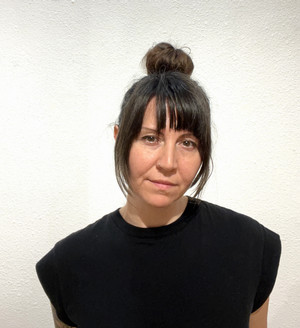TAMIU Prof. Takes Part in Ocean Expedition, Shares Experience in Lecture

A Texas A&M International University (TAMIU) faculty member recently returned from a once-in-a-lifetime expedition through the European coast.
Dr. Zhiyang Li, TAMIU assistant professor of Geology, took part in the International Ocean Discovery Program (IODP) Mediterranean-Atlantic Gateway Exchange (Expedition 401).
An on-campus lecture, “Charting New Depths: A Mediterranean-Atlantic Corridor Research Voyage,” discussing Dr. Li’s successful expedition took place Tuesday, April 9, 2024, at 3:30 p.m. in the Academic Innovation Center, room 126. Admission was free and open to the public.
The planned lecture was hosted by the TAMIU Next Level Engineering (NLE) Grant through the College of Arts and Sciences, School of Engineering.
The two-month-long expedition program embarked by Li included four distinct drilling sites, including two locations off the coast of Portugal, another off the coast of Spain in the Gulf of Cadiz, and a fourth in the Alboran Sea off the coast of Marbella, Spain.
The opportunity to travel and explore these areas offered scientists unique opportunities to better understand the causes and effects of the Messinian Salinity Crisis (MSC), a geological event that created a 1,000-meter-thick layer of salt on the sea floor.
"Scientists believe that the connection, known as the Strait of Gibraltar today, between the Atlantic Ocean and the Mediterranean Sea, narrowed and eventually closed around six million years ago…The main objectives of this expedition were to recover the Late Miocene sediments on either side of the Gibraltar Strait to reconstruct the exchange history between the Atlantic and Mediterranean and its impacts on environmental and climate conditions," explained Dr. Li.
He noted, "Because information about past environments on Earth's surface is recorded in the sediments accumulating on the seafloor, we were taking sediment cores from beneath the seafloor on both sides of the Strait of Gibraltar, the present-day marine gateway. By describing and analyzing these cores, we can see how past environments at these sites had changed before, during, and after the MSC."
During his expedition, Li worked alongside a team of international scientists, completing continuous 12-hour workday shifts.
"It was a very enjoyable experience working with engineers, technicians, and scientists from a variety of disciplines. The cores, once on deck, flew smoothly between different research labs. It was always exciting because we were the first ones who got to study these cores, and always fun to work with scientists from different cultural backgrounds around the world," he observed.
In total, scientists were able to complete a successful expedition, recovering near-complete sedimentary records from the Late Miocene period.
"The sedimentary succession we recovered at the site in the Alboran Sea is not at all what we anticipated. Previous models suggested that there was a major erosion surface associated with the Zanclean flooding prompted by a breach at Gibraltar that catastrophically refilled the desiccated Mediterranean basin at the end of the MSC. There is no evidence of this catastrophic erosion event in the succession we recovered," Li explained.
He emphasized that further opportunities for additional research are still needed.
"The total 2605-meter-thick cores recovered from all four drilling sites provide ample research and collaboration opportunities in the years to come,” Li concluded.
Li holds a doctorate in Geology from Indiana University and a master's degree from the University of Houston. He has previously served as a faculty member at Colorado College and the University of Alaska - Anchorage. He has been published in several peer-reviewed publications such as Sedimentology, Basin Research, Earth-Science Reviews, and more.
For more information, contact Li at 956.326.3293, email zhiyan.li@tamiu.edu, or visit offices in the Lamar Bruni Vergara Sciences Center, room 324A.
Registration for Maymester, Summer and Fall is underway.
TAMIU information is also online at tamiu.edu and across the University's social channels on Facebook, Instagram, LinkedIn, Twitter, and YouTube.
University office hours are 8 a.m. - 5 p.m. Monday - Friday.



